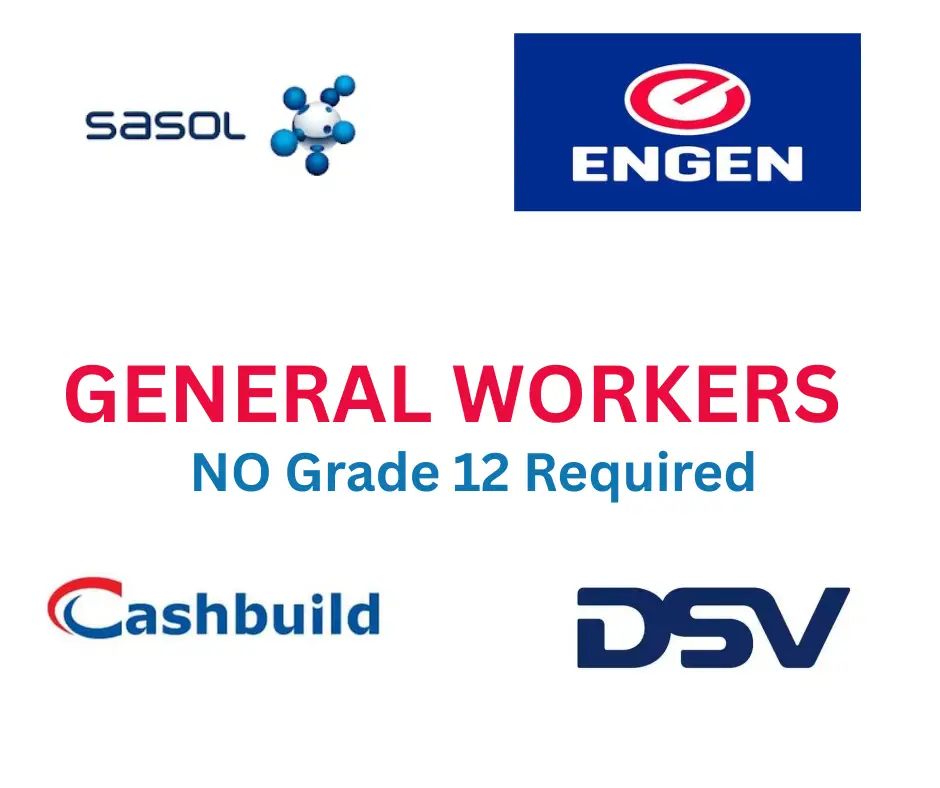Employment Opportunities for All: From Matric-Level to No-Matric Roles
Employment Opportunities for All: From Matric-Level to No-Matric Roles
In a dynamic and competitive job market, access to meaningful employment opportunities should not be limited by educational background. South Africa’s workforce is built on diversity—of skills, backgrounds, and experiences. Whether an individual has completed their Grade 12 (matric) or not, there is a wide spectrum of roles available in both public and private sectors designed to suit varying levels of education, work experience, and career aspirations.
This summary outlines two primary job categories—those that require a matric certificate and those that do not—helping job seekers identify the best path forward based on their qualifications and strengths.
Jobs Requiring Matric
Positions that require a matric certificate serve as foundational roles for many aspiring professionals. These opportunities generally expect applicants to demonstrate core competencies developed during secondary schooling, such as literacy, numeracy, communication skills, and basic computer literacy.
Employers within this category often operate in structured, process-driven environments. These positions typically involve administrative support, customer-facing responsibilities, clerical assistance, or technical support functions. Candidates are expected to adhere to company procedures, meet performance targets, and maintain a professional attitude toward their responsibilities.
Roles at this level may include exposure to digital systems, data entry, record management, basic finance, or internal and external communications. Employees are often required to work independently within a team structure, manage time efficiently, and display good interpersonal skills.
Many of these roles offer access to structured training programs such as internships, learnerships, or entry-level development schemes. These programs are designed to upskill employees while they gain practical workplace experience, often leading to formal qualifications and promotional opportunities. Employers actively support performance-driven individuals with coaching, mentoring, and further education.
Candidates with a matric certificate may also benefit from sector-specific growth paths. Industries such as customer services, corporate administration, logistics, finance, digital support, and public sector services provide career ladders that begin at matric level and can lead to supervisory, specialist, or even management positions with time and dedication.
While additional certifications or diplomas are sometimes advantageous, they are not always required at entry level. The most valued attributes include professionalism, punctuality, the ability to communicate effectively, and a willingness to learn. A matric qualification signals to employers that a candidate has successfully completed foundational schooling and is prepared to engage in work that involves critical thinking, client interaction, and operational compliance.
Ultimately, matric-level positions offer excellent entry points for individuals aiming to develop their careers in a structured and professional environment.
APPLY HERE
APPLY HERE
APPLY HERE
The City of Johannesburg Metropolitan Municipality, Public Safety Department (JMPD) 2025/26 Training
APPLY HERE
APPLY HERE
Dis-Chem Pharmacies: Retail Cosmetics Learnerships 2025 / 2026
APPLY HERE
Jobs That Do Not Require Matric
While matric is a common requirement in many sectors, a significant number of job opportunities are also available to individuals without this qualification. These roles are essential to the functioning of many industries and offer valuable entry points for individuals looking to build experience, earn an income, and progress in the workforce.
Jobs in this category typically place more emphasis on attitude, reliability, physical ability, and the willingness to work than on academic credentials. These roles may involve operational support, maintenance tasks, facility assistance, logistics handling, or general workforce participation. They are particularly suitable for individuals who are motivated to learn practical skills, adapt quickly, and contribute through consistent effort and dedication.
Although formal education may not be required, employers often provide on-the-job training to ensure employees are competent, safe, and efficient in their roles. Many organisations support employees in completing short courses or obtaining certifications related to safety, equipment use, basic workplace skills, or compliance. These added skills can significantly improve long-term employability and career progression.
Positions not requiring matric are often available in high-demand sectors and can offer job stability, consistent work hours, and even benefits such as training stipends or development support. Some of these roles serve as stepping stones into more formal employment opportunities, especially when combined with adult education or skills programmes that allow individuals to complete their matric while working.
It’s important to note that many successful professionals began their careers in these very positions—building a reputation through hard work, punctuality, and a commitment to self-improvement. Over time, individuals in these roles can move into more senior positions or pivot into entirely new career paths as their experience grows.
Work in this category instills essential workforce habits including discipline, time management, teamwork, and problem-solving. These are transferrable skills that enhance long-term career potential regardless of sector or job level.
A Pathway for Every Job Seeker
Our mission is to connect all job seekers—regardless of education level—with the right opportunity. The labour market is constantly evolving, and there is no single path to success. Whether your journey begins with a matric certificate or through practical experience in an entry-level role, opportunities exist for growth, development, and financial independence.
Employers today are looking beyond academic records. They value initiative, reliability, personal growth, and the ability to contribute positively to the workplace. Job seekers are encouraged to remain open to learning, be proactive in applying for opportunities, and pursue personal development where possible.

